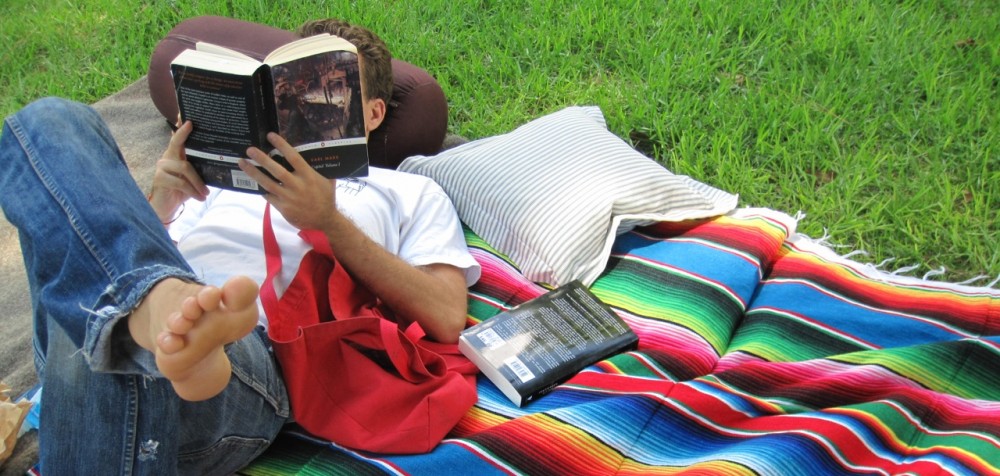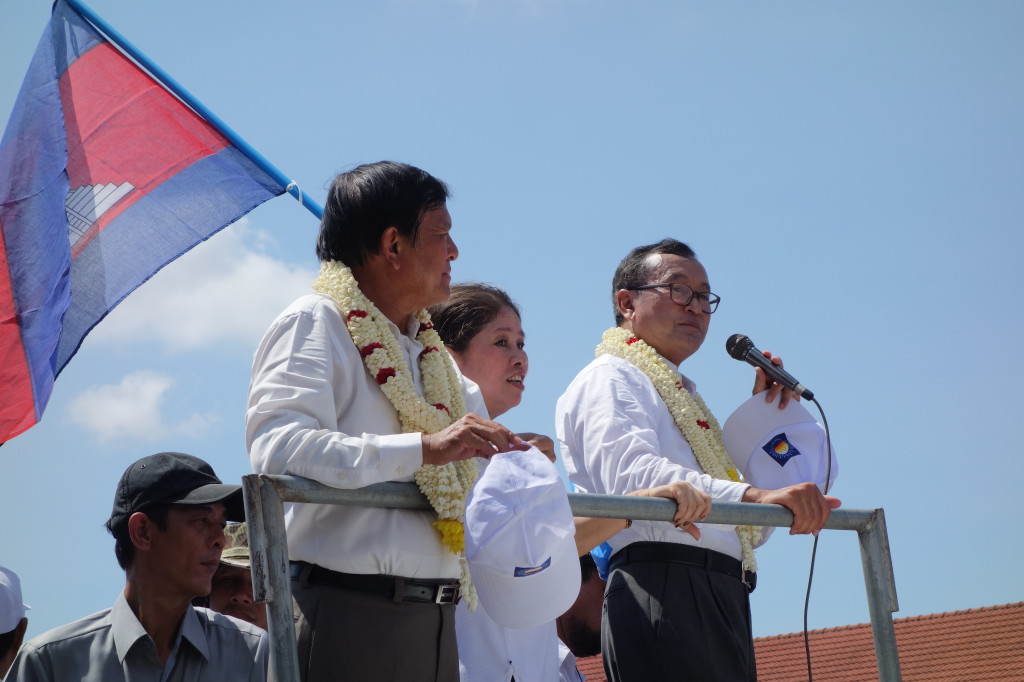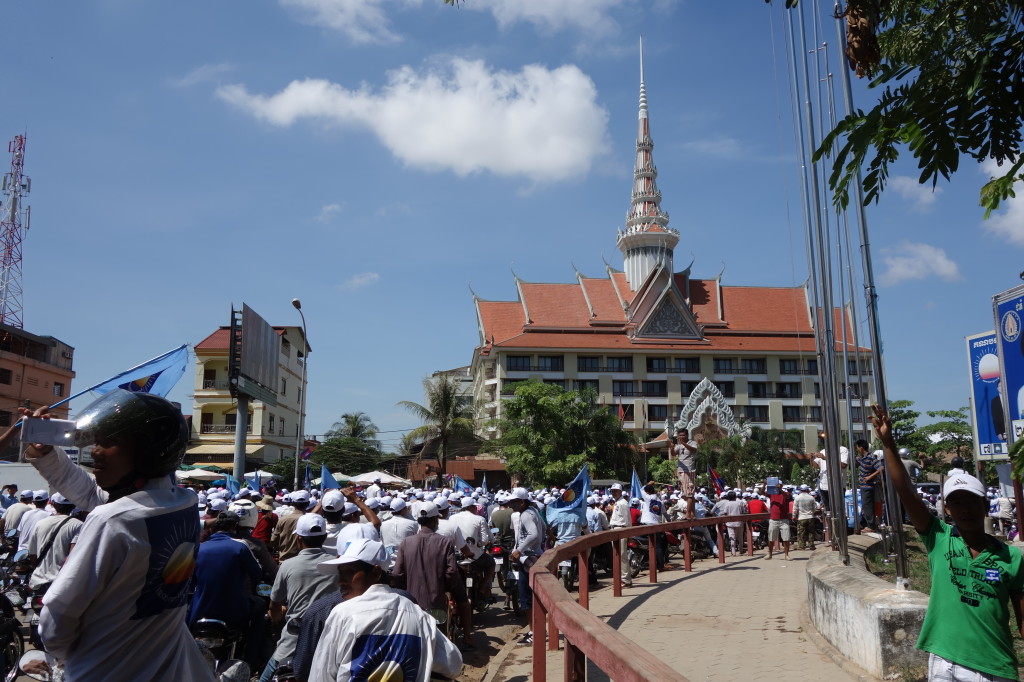On May 8, 2014, the Cambodian National Rescue Party (CNRP) held a “promotion” in Siem Reap. This was the latest stop in a campaign trail that started in the south and will conclude later this week in the north. It’s been part of various events held throughout the country since CNRP leader, Sam Rainsy, proclaimed the July 2013 elections as invalid because of voter fraud. Indeed, a rallying cry heard at many of these events has been “Where is my vote?”
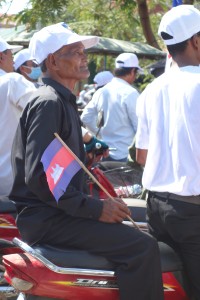 Interestingly, the terminology has changed to describe these events. When I asked a friend yesterday where the “protest” was being held, I was quickly corrected: this isn’t a “protest,” as it was called in December when I last attended a CNRP event. It is instead a “promotion.” When I inquired about the reason for the semantic change, I was told that using the word “protest” would be met with violence by the Hun Sen’s ruling part, the Cambodian People’s Party (CPP), and his “third hand” (that is, his secret police). Using the word “promotion,” by contrast, indicates the CNRP is rallying around its own ideas and not condemning the CPP.
Interestingly, the terminology has changed to describe these events. When I asked a friend yesterday where the “protest” was being held, I was quickly corrected: this isn’t a “protest,” as it was called in December when I last attended a CNRP event. It is instead a “promotion.” When I inquired about the reason for the semantic change, I was told that using the word “protest” would be met with violence by the Hun Sen’s ruling part, the Cambodian People’s Party (CPP), and his “third hand” (that is, his secret police). Using the word “promotion,” by contrast, indicates the CNRP is rallying around its own ideas and not condemning the CPP.
At the “promotion” yesterday, Sam Rainsy told supporters that CNRP would help the poor and find jobs for Cambodians who have illegally migrated to Thailand. Although there was much talk about what CNRP would do if they ever came to power, there was also much said about the problems of Hun Sen and his ruling party. People were chanting that they wanted change and that “Hun Sen, step down” 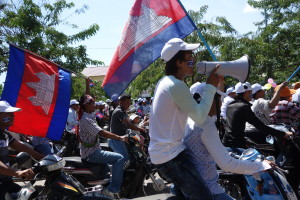
These “promotions” have been likened to the “middle class revolt” found in other countries such as Thailand and Ukraine. Although there are certainly many middle class citizens attending these events, my observations suggest there is a broad base of supporters, including rural and urban, poor and middle class, and young and old citizens. Moreover, the other “middle class revolts” have turned violent, while In Cambodia, the people I speak with tell me violence is not needed and indeed not wanted. Most CNRP supports I speak with remember the 30 years of civil war that only ended in 1998. They do not want to return to violence, so instead place their faith in change to come through democracy and human rights.
The other difference between the Cambodian “promotions” of late compared with the “middle class revolt” in other countries is in the belief in democracy. In Thailand, for instance, the “revolt” has been to oust an elected Prime Minister and attempt to install an unelected council. The Thailand “revolt” wants to eliminate corruption in the country by moving away from democracy. In Cambodia, by contrast, people want change to come through the ballot box. CNRP supports truly believe that Hun Sen will loose—and step down from— power through elections.
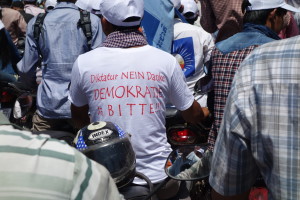 It is precisely this belief in democracy that may be the Achilles’ heal of the CNRP “promotions.” For democracy to work, institutions must be independent from the executive. Change must be possible through the ballot box (or in Thailand’s case, the judiciary), culminating in a peaceful transfer of power between leaders regardless of political party. Cambodia under Hun Sen, however, has seen the police, the military, the school, the civil service, and local commune councils politicised. The ruling party distributes largess to these social institutions based on political affiliation. Moreover, Hun Sen has a large personal army and what he has recently called his “third hand”—the invisible force that will do his dirty work. Politicalisation of social institutions and clear threats to opposition movements suggests Cambodia is not a democracy despite the CNRP’s belief in the ballot box.
It is precisely this belief in democracy that may be the Achilles’ heal of the CNRP “promotions.” For democracy to work, institutions must be independent from the executive. Change must be possible through the ballot box (or in Thailand’s case, the judiciary), culminating in a peaceful transfer of power between leaders regardless of political party. Cambodia under Hun Sen, however, has seen the police, the military, the school, the civil service, and local commune councils politicised. The ruling party distributes largess to these social institutions based on political affiliation. Moreover, Hun Sen has a large personal army and what he has recently called his “third hand”—the invisible force that will do his dirty work. Politicalisation of social institutions and clear threats to opposition movements suggests Cambodia is not a democracy despite the CNRP’s belief in the ballot box.
For CNRP to come to power in this environment means most institutions in society would have to change. The military and civil service would have to be de-politised. This is a daunting task which I’m not convinced is possible through voting alone. To put this another way: Hun Sen has ruled Cambodia in an authoritarian manner but has called the Kingdom a “democracy” because there are elections. This has convinced international donors to continue funding the government despite repeated human rights abuses. He is playing a game of semantics whereby he does one thing and calls it something else. One way Hun Sen continues his tight grip on Cambodia is through the control of words. His main opposition have wilfully changed from protests to promotions and continue to believe the chimera that Cambodia is a “democracy.” Unless the opposition embraces tactics other than “promotions,” I don’t foresee change any time soon.
